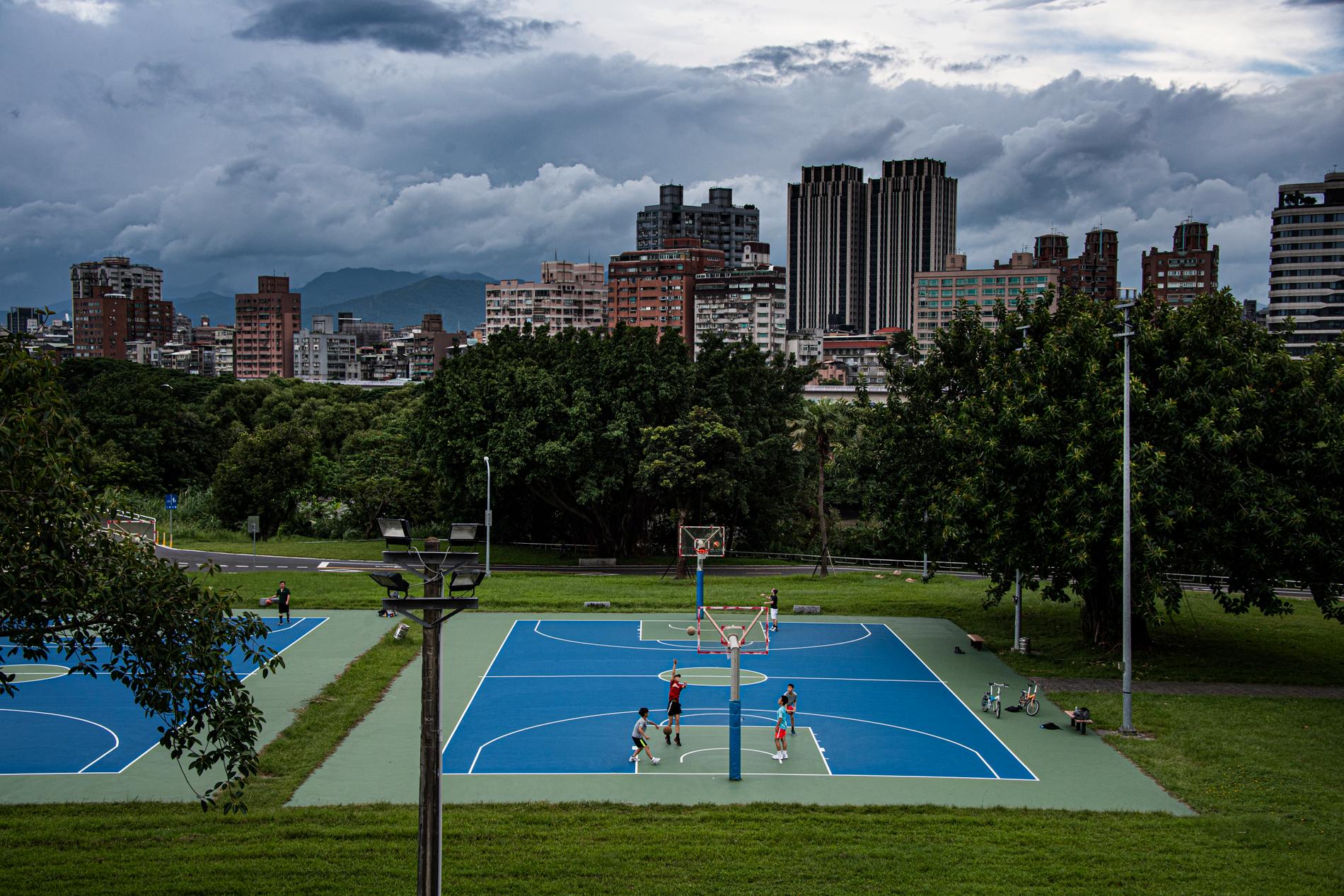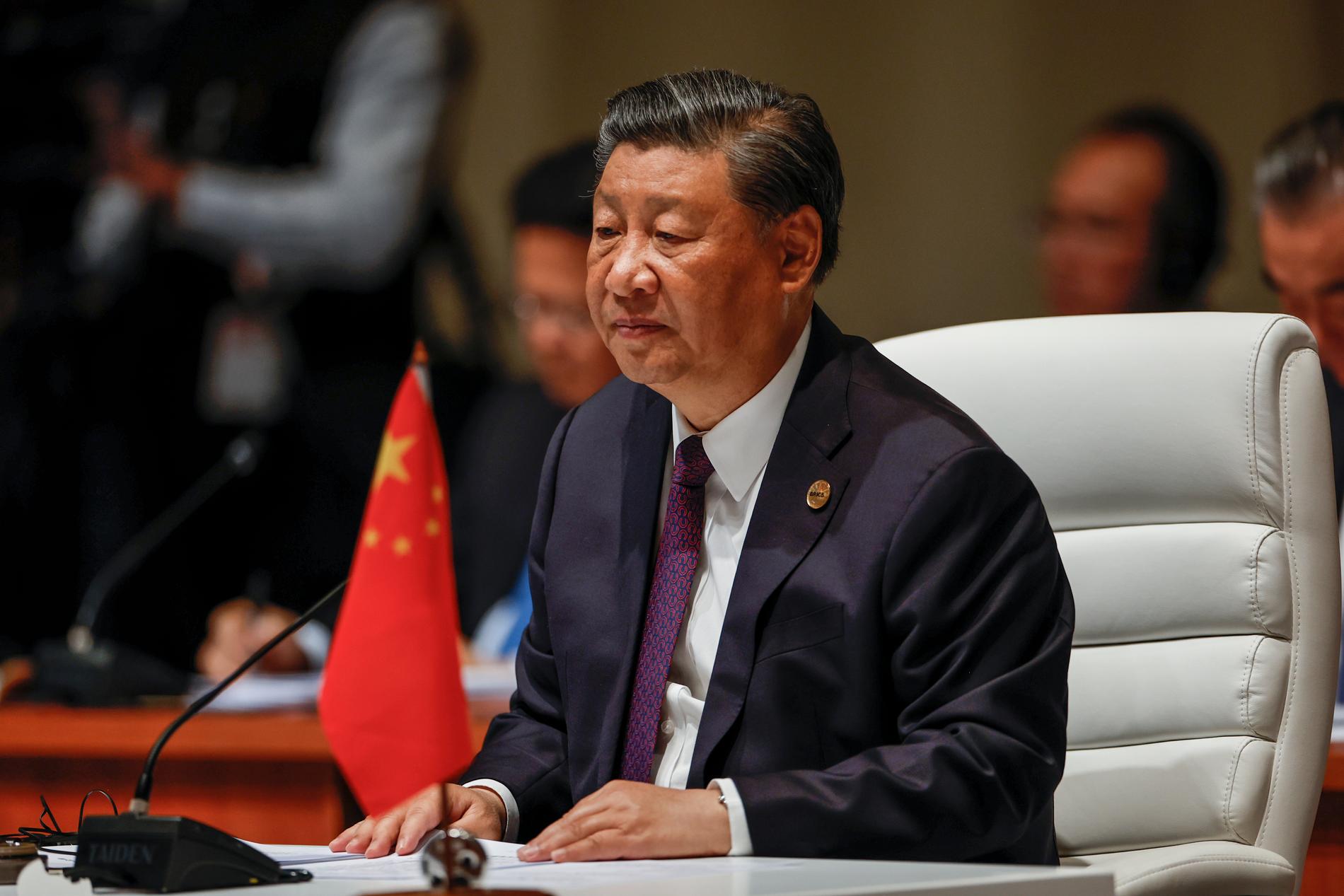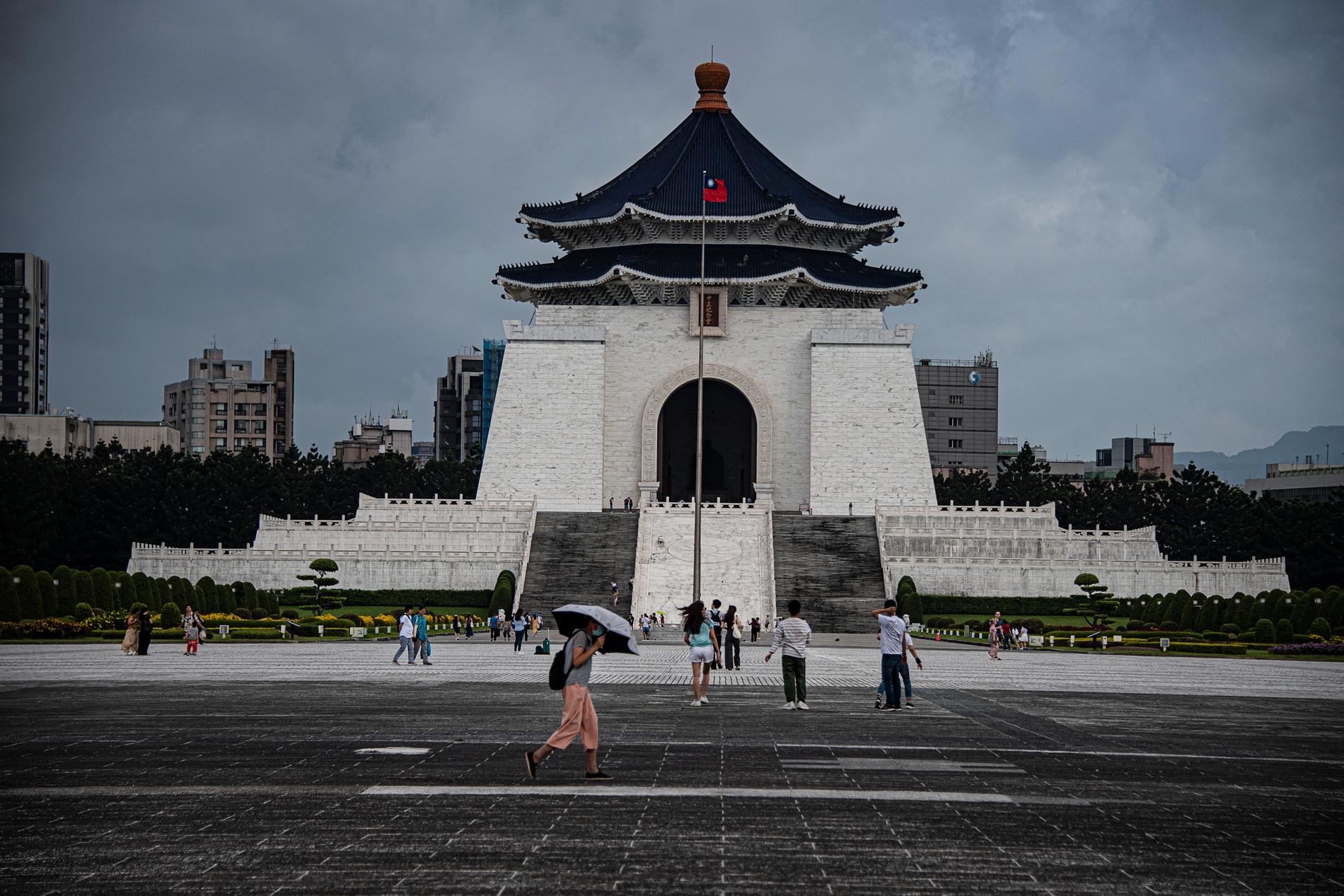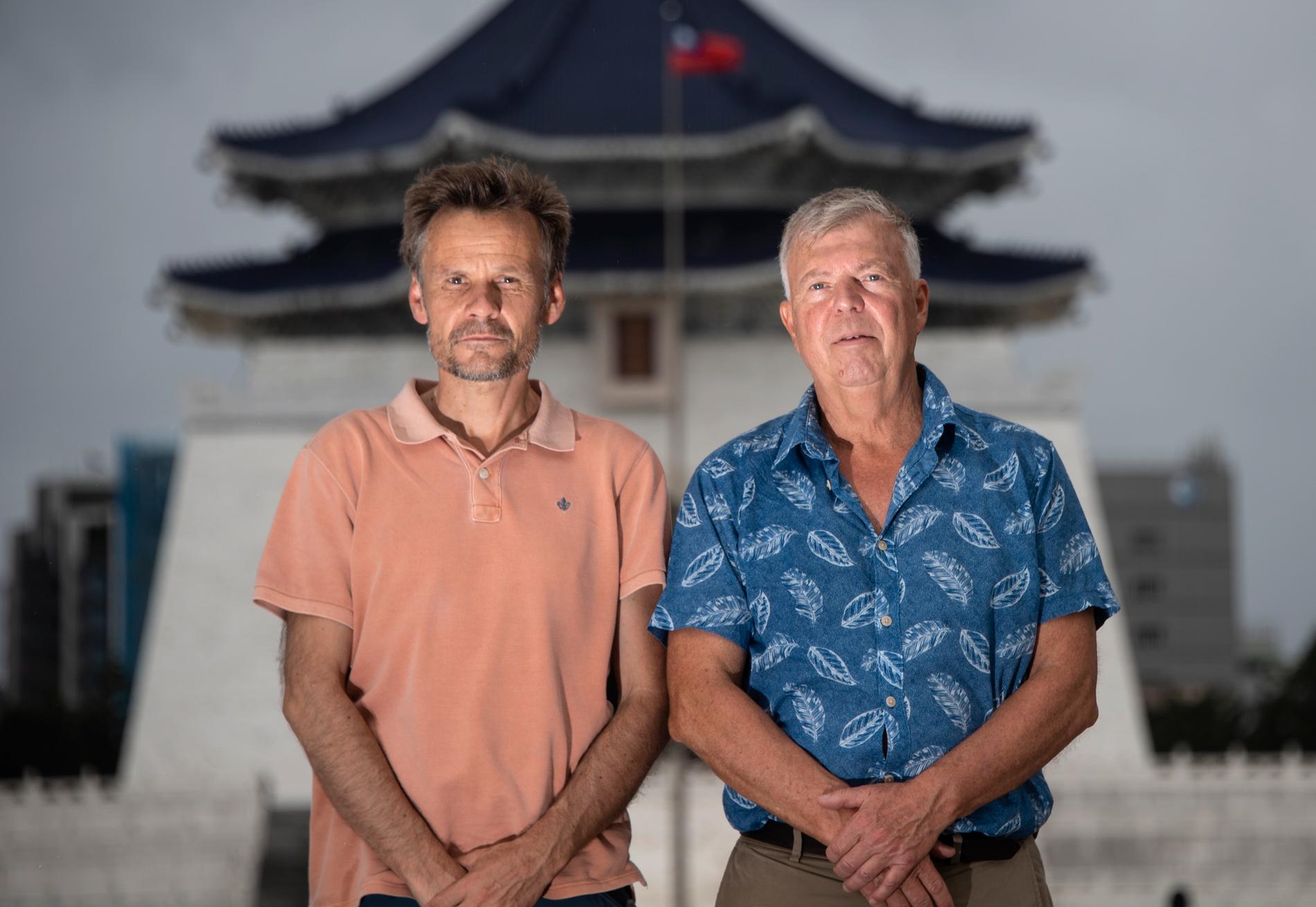The silent war
This is where the risk of a third world war is greatest
Wolfgang Hansson
This is a commenting text. Analysis and positions are the writer's.
Published 2023-10-01 10:38
Columnists
TAIPEI, TAIWAN. On the surface, everything looks calm and peaceful when we land in Taiwan.
But when you start talking to people, the idyllic image quickly dissolves.
The concern that the powerful neighbor China will attack is palpable.
If a third world war starts, the risk is high that it will be here rather than in Ukraine.
The Economist magazine recently called Taiwan the world's most dangerous place. It's not something you immediately feel when strolling around in the humid heat on the streets of the capital, Taipei, or other cities on the island, which is slightly larger than Belgium and home to 24 million people.
President Xi Jinping would never dare to challenge the United States and the international community in that way, one reasoned. A line of reasoning that is very reminiscent of how the tone went around Vladimir Putin's plans before Russia invaded Ukraine.
Regardless of one's attitude, there are good reasons to care about what is happening to the "beautiful island", which used to be called Formosa.
Taiwan is important in several ways. 90 percent of the most advanced microchips on which the world is completely dependent are produced here.
The Taiwan Strait, between China and Taiwan, is an extremely important route for world trade. If China can close the strait, one of the world's arteries is threatened.

The Economist magazine recently called Taiwan the world's most dangerous place. Photo: Jerker Ivarsson
Overall, the consequences for the world economy would be catastrophic and affect us all very negatively.
In addition, Taiwan is considered one of Asia's leading democracies in a region dominated by authoritarian states.
Whip and carrot
Ever since it took power in 1949, the Chinese Communist Party has claimed that Taiwan must be "reunified" with the mainland. But apart from a few occasions over the past 75 years, China has not pursued the issue with much enthusiasm or vigor. It has mostly been talk.
With Xi Jinping's accession as leader of the Communist Party, that has changed radically.
In all major speeches, he emphasizes the importance of a "reunification" and emphasizes that if it cannot happen peacefully, China will use military means.
To attract and appease Taiwan's population, China introduced the "one country, two systems" formula. It would assure the Taiwanese that they could preserve their democratic system even as part of China. In addition, get financial benefits. A small carrot but a lot of whip.

Chinese President Xi Jinping. Photo: Gianluigi Guercia/AP
The problem is that Xi Jinping in Hong Kong clearly showed how "one country, two systems" works in practice.
The former British crown colony of Hong Kong must, according to an agreement China entered into with Great Britain in 1997, be allowed to maintain its democratic system until at least 2047. In practice, however, China has already abolished democracy through the introduction of a special security law that stands above all other laws.
Now many fear that the same thing will happen to Taiwan according to the motto "first we take Hong Kong, then Taiwan".
Expanding nuclear arsenal
But while the British leased Hong Kong from China for a long time, Taiwan is today in practice an independent state that has never been ruled by the People's Republic of China.
However, China considers itself to have historical claims that go back much further than that.
Xi Jinping is already showing that he means business. In recent years, China has greatly increased its overflights of Taiwan, where fighter jets infringe on the country's air defense zone almost daily. China has also several times practiced a naval blockade of Taiwan.
The closer the election in Taiwan in January 2024 gets, the more aggressively China behaves.
Taiwan has a powerful ally in the United States. President Joe Biden has assured at least three times in the past year that the United States will defend Taiwan in the event of a Chinese attack.

A successful Chinese invasion of Taiwan could cause other tiles in the geopolitical domino game to fall, writes Wolfgang Hansson. Photo: Jerker Ivarsson
If China invades Taiwan, it means in practice a great risk of a war between the world's superpower, the United States, and its main challenger, China. Both nuclear powers. China is in the process of greatly expanding its nuclear arsenal.
Perhaps the US is content to provide Taiwan with advanced weapons and military intelligence, as in Ukraine. But it becomes more difficult as Taiwan is an island that China can blockade from the sea with its large fleet of military ships and from the air with its fighter jets.
The end of the US as a superpower
The US actually has more to defend in Taiwan than in Ukraine.
If China were to be allowed to take over Taiwan, it would effectively mean the end of the US as a superpower. The United States would completely lose its credibility as a reliable partner to Japan, South Korea, the Philippines and other countries in Southeast Asia and Oceania that today view with fear China's increasingly aggressive territorial claims in, among other things, the South China Sea. The US is seen as the guarantor of countering China's expansion.
A successful Chinese invasion of Taiwan could cause other tiles in the geopolitical domino game to fall. North Korean dictator Kim Jong-un may take the chance to attack his neighbor to the south.
North Korea is also, as you know, a nuclear weapon nation that openly threatens to use its weapons of mass destruction. Hopefully it's just empty talk, but the question is whether the world wants to have to look at North Korea.
My impressions after almost two weeks in Taiwan are that it is a modern, peaceful and well-functioning society that does not threaten anyone.
Absolutely strongest is the surprise I feel that so many of those I talk to in various walks of life are so convinced that China will attack Taiwan at some stage in the not-too-distant future.

Aftonbladet's Jerker Ivarsson and Wolfgang Hansson on location in Taipei, Taiwan. Photo: Jerker Ivarsson
FACTS
The silent war
While the world's eyes are on Ukraine, a new and perhaps even more dangerous conflict is brewing in Asia.
Taiwan could become the next Ukraine.
The giant China threatens to invade Taiwan if the country does not voluntarily agree to become part of China.
US President Joe Biden has repeatedly promised to defend Taiwan in the event of a Chinese attack.
The risk is obvious of a direct war between the superpower USA and its main challenger China. Both nuclear powers.
Aftonbladet's Wolfgang Hansson (text) and Jerker Ivarsson (photo) have visited the island, vital to the world economy, to find out how Taiwanese perceive and try to face the threat of invasion.

Inga kommentarer:
Skicka en kommentar